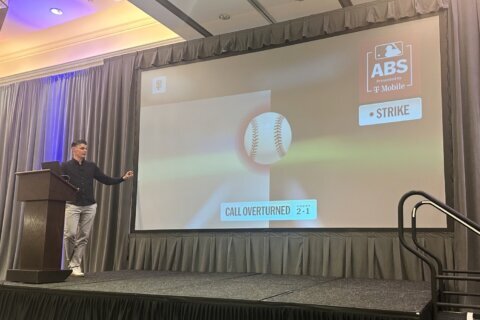WASHINGTON — I was sitting in the lobby bar of the Gaylord National Harbor Hotel last December as baseball’s Winter Meetings swirled around, catching up with a friend. At our table was one of the hundreds, maybe thousands, of young job seekers swarming the scene, looking for any in to be found.
This young man, a recently graduated college baseball player, wanted to work in baseball operations and had an upcoming interview. I asked him what I considered to be a very rudimentary piece of statistical knowledge for those working in the game — the difference between ERA and FIP (fielding independent pitching) — to make sure he wasn’t completely unprepared, only to find him staring back at me blankly.
It wasn’t this kid’s fault, his lack of knowledge about the statistics that govern baseball. Even though he’d spent his entire conscious life playing the game, he had never been exposed to the more effective tools of measurement, just as many casual fans are not. Most broadcasts still display old, dumb stats that don’t really tell us anything meaningful about the player at bat. But just because MASN still shows RBI on a player graphic overlay doesn’t mean that anyone inside the game puts any stock in the number.
Baseball broadcasts can be dumb. But baseball front offices are no longer dumb. The statistical revolution is long over within the walls of your local MLB club, where desks are manned by Ivy League grads and other mathematical minds analyzing data much of the baseball-watching public never sees. Yet those old, dumb numbers are still fed to us, mostly just because they’ve always been.
In his most formal attempt to shake up that paradigm amid a career spent railing against the old guard, former MLB scout and current ESPN baseball writer Keith Law delivers “Smart Baseball.” A treatise designed to clearly demonstrate a better way to digest the numbers of the game, the book steers clear of overloading the reader with too much math or making too many assumptions. Imbued with Law’s trademark snark, it’s an all-levels primer into the changes the way we see the game have undergone and where baseball is headed next.
Law chatted with WTOP about why he wrote the book, which stat he hates the most and why bunting is almost always the wrong decision. Listen to the full interview.







